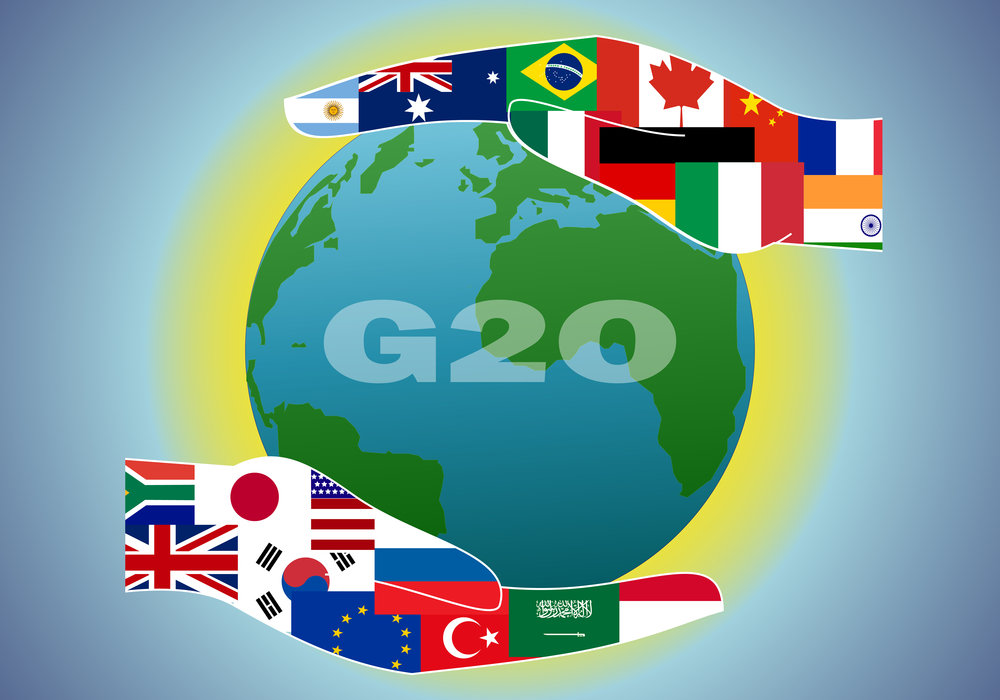
The G20 is an intergovernmental forum comprising nineteen countries and the European Union (EU) that works to address issues related to the global economy, such as international financial stability, climate change mitigation, and sustainable development. The G20 countries account for around 80% gross world product (GWP), and 60% of the world’s land area.
The G20 framed its commitment to the 2030 Agenda (Sustainable Development Goals) in three key themes:
- the promotion of strong sustainable and balanced growth,
- protection of the planet from degradation,
- and furthering cooperation with low-income and developing countries.
G20 Summit 2023
In September 2023, President Biden secured commitments to ensure the G20 continues to set its collective ambition high to address the climate crisis.
The G20 Bali Leaders’ Declaration commits to reducing environmental impacts by changing unsustainable consumption and production patterns as well as enhancing environmentally sustainable economic growth.
International cooperation is needed to mitigate climate disasters.
Sustainability, Energy, Climate and Growth
Climate change is one of the most pressing issues facing the world today. The G20 recognises the importance of investing in climate and investing in growth. According to a report by the OECD, G20 countries can achieve strong and inclusive economic growth at the same time as reorienting their economies towards development pathways with low greenhouse gas emissions. The report highlights the importance of investing in climate, investing in growth, and investing in people.
Investing in climate can lead to economic growth and create new opportunities for businesses, generate new jobs, and stimulate innovation.
The report also highlights the importance of investing in renewable energy, energy efficiency, and low-carbon infrastructure. By investing in these areas, G20 countries can reduce their carbon emissions and promote sustainable economic growth.
Fossil Fuel Subsidies
The G20 has committed to phasing out inefficient fossil fuel subsidies that encourage wasteful consumption. According to a report by the International Energy Agency, phasing out fossil fuel subsidies could reduce global carbon emissions by 10% by 2050.
The commitment to renewable energy was commendable, yet it sidestepped the root cause – the global dependency on fossil fuels. The language on phasing out coal-fired power was notably soft, an approach criticised as inadequate by climate activists.
Green Finance
Green finance is another key area that the G20 is focusing on. Green finance refers to financial products and services that support sustainable economic growth and reduce carbon emissions.
The G20 has committed to promoting green finance and has established the Green Finance Study Group to explore ways to mobilise private capital for green investments.
The G20 has also established the Task Force on Climate-related Financial Disclosures to develop recommendations for disclosing climate-related risks and opportunities.
Implementing Commitments
By investing in renewable energy, energy efficiency, and low-carbon infrastructure, G20 countries can reduce their carbon emissions and promote sustainable economic growth. The G20 has also committed to phasing out inefficient fossil fuel subsidies and promoting green finance. These efforts are critical to achieving a sustainable future for all.
Need help setting annual CO2 reduction targets? Get your Certification through one of our NoCO2 Certification Programs.


